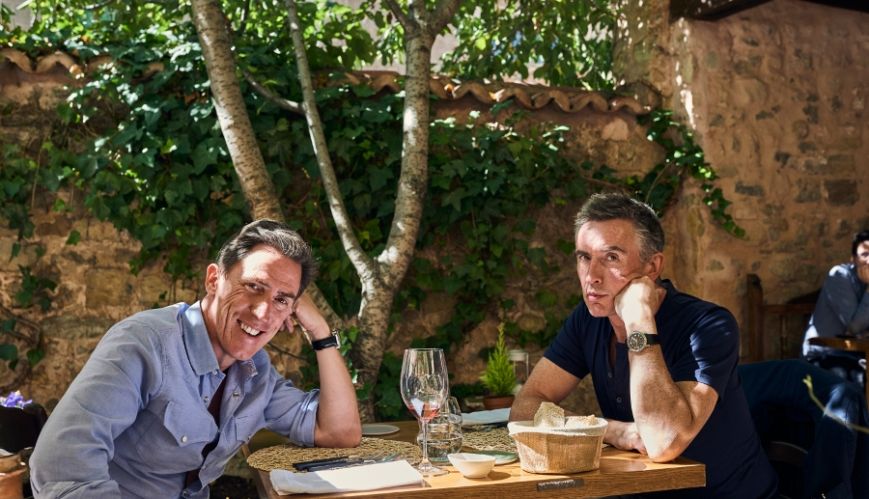The Trip to Spain

The Trip to Spain
29 August 2017
Rob Brydon and Steve Coogan provide a laid-back comedic experience in The Trip to Spain that also delivers on real-life insights.
The Trip to Spain is the third in a series of films released by British comedians Steve Coogan and Rob Brydon. The Trip, The Trip to Italy and this latest instalment were originally television series that have been recut for cinematic release.
In each case, Coogan and Brydon are playing fictionalised versions of themselves, and touring a range of restaurants to gather information for culinary articles.
On the surface, they’re romps through beautiful countryside dotted with delicious meals, underscored by the near- constant soundtrack of the pair’s carping about the state of the television industry, family relationships and each other.
On paper, it sounds like a disaster. In reality, it’s one of the most laid-back but entertaining comedy series to grace the screen. In addition, each film has offered some important insights on what it means for men to grow old. The Trip to Spain is no exception.
For a culinary road trip, The Trip to Spain is surprisingly informative. Audiences will find there are entertaining ways to learn about everything from the Spanish Civil War to Spanish literature, and the rise of the Moors to the rise of Cubism. Coogan and Brydon can’t resist their usual run of impressions, too. However, the best insights for the thinking filmgoer arise from Coogan and Brydon’s continuing attempts to come to terms with life in their 50s.
Coogan and Brydon recognise they are wandering the Spanish countryside in much the same way as the famous literary characters Don Quixote and Sancho Panza. Coogan is very much the Quixote character, a dreamer desperately seeking to inhabit a fabulous world that seems just out of reach. Brydon, by contrast, is Coogan’s “Panza”, constantly bringing him down to earth.
The strongest point of tension in this romp arrives when Steve receives an unexpected Skype call from his son. Coogan has regularly mentioned how he is in the “sweet spot” of life with many great things to look forward to, one of which is catching up at the end of the trip for some zip-lining with his boy. Brydon subtly questions whether he is aware of his age.
However, the impact of that query doesn’t come until Coogan receives the news that his son won’t be coming because he has gotten his girlfriend pregnant. It’s hard to tell at that point what disappoints Steve more: his son’s unexpected growing up, or the news that he will be a grandfather.
Coogan’s fictionalised version of himself is clearly a character who could benefit from reading Ecclesiastes: “Remember [your Creator] – before the silver cord is severed, and the golden bowl is broken; before the pitcher is shattered at the spring, and the wheel broken at the well, and the dust returns to the ground it came from, and the spirit returns to God who gave it.”
People who actually have “all the time in the world” are rarely reassuring themselves so much. It’s because Steve can feel the sand grains slipping through the hour glass that his journey through The Trip to Spain is so poignant. The film finishes contrasting two lives.
Someone who has found peace in his family, and someone who is still searching for meaning. However, a third option would have been welcome: someone who has peace with every up and down because they know the God who designs the days they find themselves in.
The Trip to Spain is rated M, and is currently screening in cinemas.
Mark Hadley is the culture writer for others and is one of Australia’s leading Christian communicators.